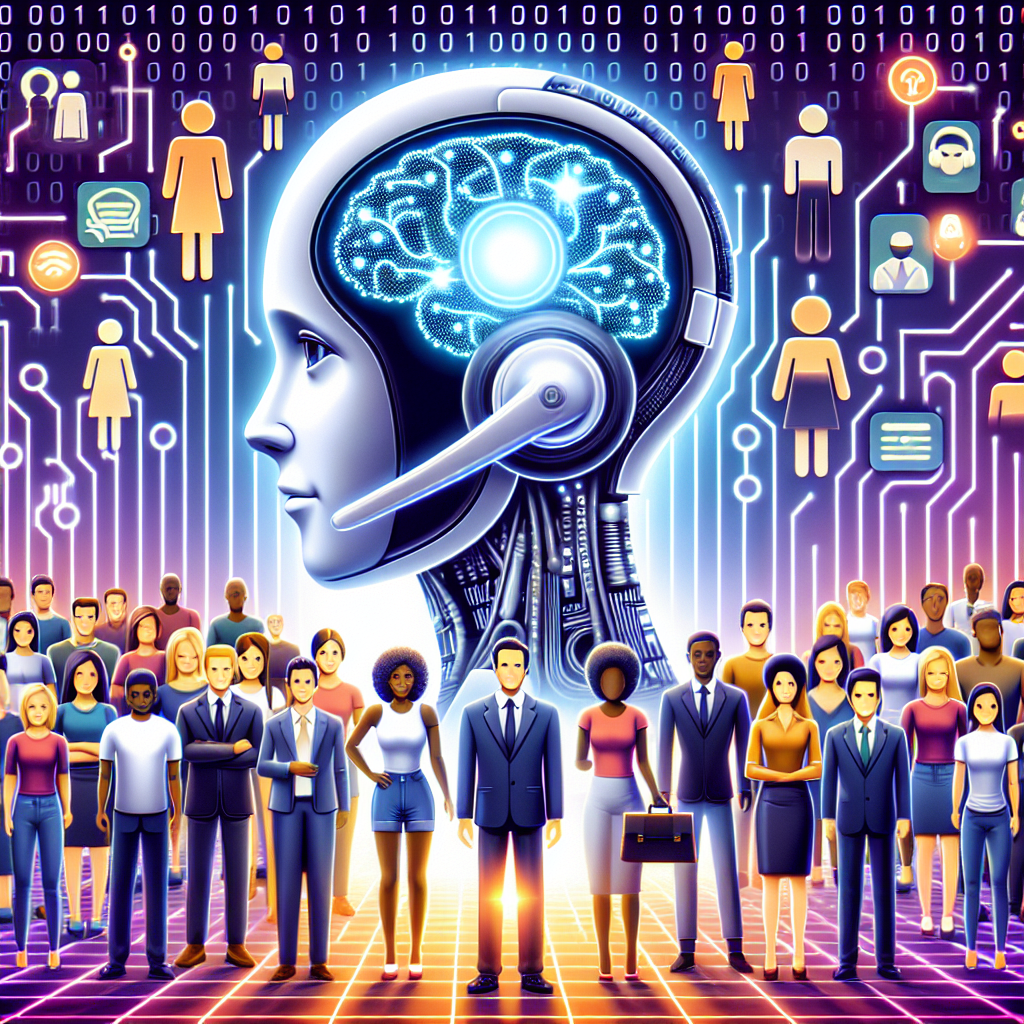In today’s competitive business landscape, customer service is a key differentiator for companies looking to stand out from the crowd. With the rise of artificial intelligence (AI) technologies, businesses have new tools at their disposal to drive innovation and deliver exceptional customer service experiences. Leveraging AI technologies can help companies streamline processes, improve efficiency, and provide personalized service that meets the needs of today’s consumers.
Case Studies:
1. Amazon: Amazon is a prime example of a company that has successfully leveraged AI technologies to drive customer service innovation. The e-commerce giant uses AI-powered chatbots to provide instant support to customers, answering common questions and resolving issues in real-time. By automating these routine tasks, Amazon is able to free up human agents to focus on more complex customer inquiries, resulting in faster response times and higher customer satisfaction rates.
2. Starbucks: Starbucks has also embraced AI technologies to enhance its customer service offerings. The coffee chain uses AI algorithms to personalize the customer experience, tailoring recommendations and promotions based on individual preferences and purchase history. By leveraging AI, Starbucks is able to anticipate customer needs and deliver a more personalized and engaging experience both in-store and online.
3. Delta Airlines: Delta Airlines has implemented AI-powered predictive analytics to anticipate and prevent customer service issues before they arise. By analyzing historical data and customer feedback, Delta is able to proactively address potential problems and provide a seamless travel experience for its passengers. This proactive approach to customer service has helped Delta improve customer satisfaction and loyalty, setting the airline apart from its competitors.
Success Stories:
1. IBM Watson: IBM Watson is a powerful AI platform that has been used by companies across industries to drive customer service innovation. One success story comes from H&R Block, a tax preparation company that uses Watson to assist customers with tax-related questions and issues. By leveraging Watson’s natural language processing capabilities, H&R Block is able to provide more accurate and personalized support to its customers, leading to higher satisfaction rates and repeat business.
2. Bank of America: Bank of America has also seen success in leveraging AI technologies to drive customer service innovation. The bank uses AI-powered chatbots to assist customers with banking inquiries, such as account balances, transaction history, and loan applications. By automating these routine tasks, Bank of America is able to provide faster and more efficient service to its customers, resulting in higher customer satisfaction and loyalty.
3. UPS: UPS is another company that has successfully implemented AI technologies to improve customer service. The logistics giant uses AI algorithms to optimize delivery routes, predict package arrival times, and proactively communicate with customers about their shipments. By leveraging AI, UPS is able to provide more accurate and reliable delivery services, leading to higher customer satisfaction and retention rates.
FAQs:
1. How can AI technologies help improve customer service?
AI technologies can help improve customer service by automating routine tasks, providing personalized recommendations, and predicting customer needs. By leveraging AI, companies can streamline processes, improve efficiency, and deliver a more personalized and engaging customer experience.
2. Are AI-powered chatbots effective in customer service?
AI-powered chatbots can be highly effective in customer service, providing instant support to customers, answering common questions, and resolving issues in real-time. By automating these routine tasks, chatbots can free up human agents to focus on more complex inquiries, resulting in faster response times and higher customer satisfaction rates.
3. What are some best practices for leveraging AI technologies in customer service?
Some best practices for leveraging AI technologies in customer service include:
– Understanding customer needs and preferences
– Training AI algorithms with relevant data
– Providing ongoing support and training for AI systems
– Monitoring performance and making adjustments as needed
– Ensuring transparency and accountability in AI-powered interactions
In conclusion, leveraging AI technologies can help drive customer service innovation and differentiation for companies looking to stand out in today’s competitive market. By implementing AI-powered solutions, businesses can streamline processes, improve efficiency, and deliver personalized service that meets the needs of today’s consumers. Case studies and success stories from companies like Amazon, Starbucks, and Delta Airlines demonstrate the power of AI in transforming the customer service experience. By following best practices and staying abreast of the latest AI developments, companies can position themselves for success in the digital age.

